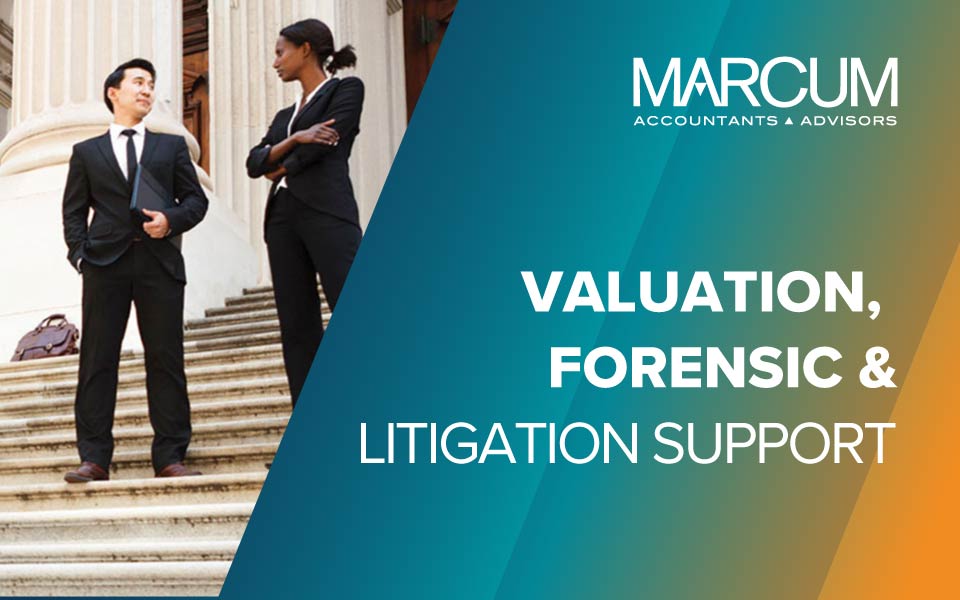International Valuation Standards: What is on the Horizon for U.S.-based Business Valuation Experts?
By Sean R. Saari, Partner, Advisory Services

I feel completely surrounded – like the Spartans did in Battle of Thermopylae, chronicled in the movie “300”. Rather than being encircled by Xerxes’ Persian army, however, my plight is much more benign (and much less bloody). I’m bombarded by the amount articles discussing the convergence of U.S. GAAP and International Financial Reporting Standards (IFRS). Exposure drafts for revised standards developed jointly by the Financial Accounting Standards Board (FASB) and the International Accounting Standards Board (IASB) have been released. The SEC may begin requiring U.S. public companies to begin using IFRS in place of U.S. GAAP beginning in 2015.
All of this activity raises the question: As accounting standards move towards convergence, are valuation standards headed in that direction as well?
If it were up to the International Valuation Standards Council (IVSC), the answer to that question would be a resounding “yes.” The goal of this London-headquartered organization, which traces its roots back nearly 30 years, is to establish a set of valuation standards and associated guidance that is adopted globally. In fact, the IVSC recently released an exposure draft for the ninth edition of its International Valuation Standards (IVS) in June 2010 and it intends to publish the new standards in their final form in April 2011.
Although not as commonplace in the U.S. as valuation standards such as SSVS No. 1 and USPAP, IVS have been gaining momentum overseas. In recent years and throughout many world regions, including countries such as Australia, New Zealand, Romania, Turkey, South Africa, the United Kingdom and Ireland, IVS have been: 1) adopted by professional institutes; or 2) required by regulators and user groups (such as for valuations used to support IPOs, bank lending or financial reporting). Sponsors of the IVSC include Deloitte Touche Tohmatsu, Duff & Phelps, Ernst & Young, Grant Thornton, KPMG and other heavyweights in the world of valuation and accounting. Over 40 different appraisal/valuation associations are members of IVSC, including The Appraisal Institute and American Society of Appraisers in the U.S. In fact, in 2006, IVSC and The Appraisal Foundation expressed their commitment to work together to converge USPAP and IVS. To this end, Chris Thorne, Technical Director of the IVSC, indicated that a valuation prepared in accordance with USPAP and a valuation prepared in accordance with IVS should produce the same result.
How similar are the IVS standards to those promulgated by the AICPA and NACVA, the organizations with the most members practicing business valuation in the U.S.? As expected, most of the general concepts are similar.
There are, however, certain differences that U.S.-based appraisers should take note of.
- Beyond business ownership and intangible asset valuations, IVS also covers valuations for lease accounting, impairment testing, depreciation, plant and equipment, property interests, historic property, investment property under construction and other areas. As such, it appears that the new IVS were developed with a lean toward appraisers who perform valuations for financial reporting purposes rather than those whose main focus is appraising business ownership interests outside of a financial statement context.
- IVS focuses much more attention on standards of value than either SSVS No. 1 or the NACVA standards, including detailed discussions of both “fair value” and “market value” (which appears to be similar to the “fair market value” standard that U.S.-based appraisers are familiar with).
So while IVS may not be all that different from the standards that we as business valuators know and with which we are familiar in the U.S., understanding the nuances associated with another set of valuation standards is no simple task. This brings us back to our original question: What is the likelihood of a convergence in U.S. and international valuation standards?
Not all U.S. valuation credentialing organizations are jumping on the convergence bandwagon just yet. While Eddy Parker, Technical Manager for Valuation Services at the AICPA, sees the convergence of valuation standards as a noble goal, he doesn’t expect such convergence to occur in the near future for SSVS No. 1. While the AICPA has had high level conversations with the IVSC, there are currently no plans on the table for standards convergence. Further, while NACVA is following the activities of the IVSC, it appears that the organization has no immediate plans for convergence with international standards at this point either.
The IVSC is simply a standards creator – not a credentialing organization or enforcement agency. Therefore, adherence to IVS is not required unless: 1) a valuation expert is preparing a valuation report that will be used in an international jurisdiction that requires the use of IVS; 2) the expert is part of a professional organization that has mandated that IVS be observed; or 3) the client requests that IVS are followed. This is unlike SSVS No. 1 and the NACVA standards, which were developed by their respective professional organizations and apply to all credentialed CPAs and CVA/AVAs, respectively. Regardless, it is important for any expert preparing a valuation analysis for use outside of the U.S. to gain an understanding of the relevant valuation standards that may require his or her compliance. While the basic valuation fundamentals may not be all that different from what we are all accustomed to in the U.S., there are certainly nuances in development and reporting requirements that may need to be considered.
So while there is currently some effort being put forth by The Appraisal Foundation related to the convergence of valuation standards on an international scale, IVS’s impact on U.S.-based valuators at this time is minimal. This does not mean that we as valuation experts can ignore IVS’s presence and content, though. Considering the planned changes ahead in U.S. accounting related to the U.S. GAAP and IFRS convergence project, as well as the increased reliance on fair value in accounting standards worldwide, do not be surprised if the topic of valuation standards convergence continues to gain steam over the coming years. It may not be long before we as valuation experts are surrounded on all sides – much like King Leonidas of Sparta – by valuation standards convergence activity.
For further information:
Information on the International Valuation Standards and the organizations that may play a role in international valuation standards convergence in the future can be found on the following websites:
- International Valuation Standards Council: www.ivsc.org
- International Valuation Standards – June 2010 Exposure Draft: www.ivsc.org/pubs/exp_drafts/ivs_20100610.pdf
- International Accounting Standards Board and International Financial Reporting Standards: www.ifrs.org
- Financial Accounting Standards Board: www.fasb.org
- American Society of Appraisers: www.appraisers.org
- American Institute of Certified Public Accountants – Forensic and Valuation Services: www.aicpa.org/InterestAreas/ForensicAndValuation/Pages/FVS.aspx
- National Association of Certified Valuation Analysts: www.nacva.com
For more information on International Valuation Standards, please contact our Financial Reporting Valuation services at (855) MARCUM1.
This article was printed in the February 2011 Business Valuation Update e-newsletter.





















